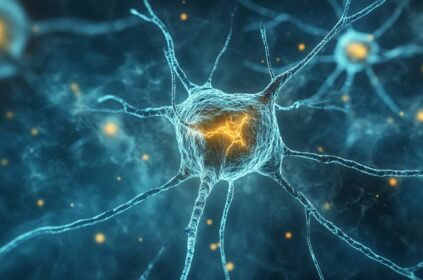Introduction to Delta-9 THC and Anorexia Nervosa
Anorexia nervosa is not just an eating disorder; it’s a complex interplay of psychological, emotional, and physical struggles. For many, the path to recovery is fraught with challenges, particularly when it comes to restoring healthy eating habits and normal weight. Among the various treatment approac
hes being explored, Delta-9-tetrahydrocannabinol (Delta-9 THC), the psychoactive compound found in cannabis, has emerged as a potential ally. This guide will provide an overview of what Delta-9 THC is, how it interacts with our body, and its potential role in the treatment of anorexia nervosa.
Understanding Anorexia Nervosa
Anorexia nervosa is more than a desire to be thin; it involves a distorted body image and an overwhelming fear of weight gain, which can drive individuals to engage in extreme dietary restrictions. According to the National Eating Disorders Association, this eating disorder poses one of the highest mortality rates among psychiatric disorders. Treatment can be challenging due to the intertwining psychological issues and physiological repercussions, such as nutrient deficiencies, that accompany this condition.
The disorder typically presents in adolescents and young adults but can occur at any age. Co-existing conditions, such as anxiety, depression, or obsessive-compulsive disorder, complicate treatment outcomes. As a result, many individuals struggling with anorexia require a comprehensive treatment approach that addresses both mental health and physical health.
Delta-9 THC and Appetite Stimulation
Delta-9 THC is widely recognized for its ability to stimulate appetite—often referred to as the “munchies.” This phenomenon stems from THC’s interaction with the endocannabinoid system, wherein it binds primarily to CB1 receptors in the brain. These CB1 receptors are pivotal in regulating various bodily functions, including appetite and the perception of hunger.
Mechanisms of Action
- Activation of CB1 Receptors: When Delta-9 THC attaches to CB1 receptors, particularly in the hypothalamus, it boosts the production of hormones that stimulate appetite, such as ghrelin. This biochemical shift encourages food intake, potentially reversing the restrictive behaviors seen in individuals with anorexia.
- Enhancement of Food Reward: Beyond simply increasing hunger, Delta-9 THC enhances the pleasurable aspects of eating. By activating the brain’s dopamine pathways, THC can make food seem more rewarding, which is beneficial since individuals with anorexia often experience a diminished sensitivity to food rewards—leading to disinterest in eating.
Clinical Evidence
The idea of using Delta-9 THC as a treatment for anorexia nervosa isn’t merely theoretical—clinical trials and research have begun to explore its real-world implications.
- Randomized Controlled Trials (RCTs): A systematic review of the literature found key studies showcasing the potential of Delta-9 THC in treating anorexia. For instance, a study conducted by Gross et al. in 1983 reported that participants treated with Delta-9 THC experienced significant weight gain and decreased depression levels. However, it’s important to note that this study was limited by its small sample size and short duration.
- Dronabinol Studies: In 2014, another RCT by Andries et al. focused on dronabinol, a synthetic THC, in women with severe anorexia nervosa. The findings were promising, showing notable weight gain in the treatment group compared to those receiving a placebo, indicating that THC-like compounds could provide a meaningful avenue for support in recovery.
Potential Benefits and Considerations
Benefits
- Weight Gain: One of the most pressing issues in treating anorexia nervosa is achieving healthy weight restoration. Delta-9 THC has shown potential for fostering significant weight gain, directing attention to the urgent need for nutritional recovery.
- Appetite Stimulation: The ability of Delta-9 THC to increase appetite can be pivotal in encouraging individuals to consume more calories, which is vital for their recovery journey.
- Psychological Well-Being: Some preliminary findings suggest that Delta-9 THC might also improve mood and reduce anxiety, both of which can aid in the overall treatment process. Enhanced emotional health can lead to better engagement with other therapeutic modalities.
Considerations and Precautions
- Individual Variations: It’s essential to recognize that responses to Delta-9 THC can vary considerably among individuals. Factors such as body chemistry, dosage, and previous experiences with cannabis can all influence outcomes.
- Potential Side Effects: While the benefits are compelling, Delta-9 THC is not without its risks. Users may experience side effects like cognitive changes, increased heart rate, dry mouth, and mood fluctuations. These effects can be particularly concerning for those with pre-existing mental health conditions.
- Legal and Accessibility Issues: Delta-9 THC’s legal status varies widely across different regions, which can complicate access for patients seeking treatment. It’s crucial that any use of cannabis or its derivatives is guided by healthcare professionals who can navigate these complexities.
Integrating Delta-9 THC into Treatment Plans
Incorporating Delta-9 THC into treatment regimens for anorexia nervosa can be complex but potentially beneficial for some patients.
- Combination with Other Therapies: Delta-9 THC should ideally form part of a broader treatment strategy that includes therapeutic modalities such as Cognitive Behavioral Therapy (CBT), nutritional counseling, and medical interventions. This multifaceted approach addresses the comprehensive nature of eating disorders.
- Monitoring and Adjustment: Close monitoring of the patient’s response to Delta-9 THC is essential. This ongoing evaluation allows healthcare providers to adjust treatments as necessary, ensuring that the benefits of increased appetite are balanced with any side effects that may arise.
Conclusion
Emerging research suggests that Delta-9 THC may offer promising benefits in stimulating appetite and promoting weight gain in individuals battling anorexia nervosa. However, its use should be approached with caution and under professional guidance to ensure safety and efficacy. As research continues to shed light on this compound’s long-term effects and optimal dosing strategies, Delta-9 THC could become an integral part of a multi-faceted treatment plan, supporting holistic recovery for individuals struggling with this challenging eating disorder.
Actionable Tips
- Consult Healthcare Professionals: Before considering the use of Delta-9 THC for anorexia nervosa, it’s essential to have thorough discussions with qualified healthcare providers to weigh potential advantages and risks.
- Monitor Responses: Keep a close dialogue with healthcare practitioners regarding any changes in appetite or weight. Regular feedback can be critical in adjusting treatment plans effectively.
- Combine with Other Therapies: Leverage Delta-9 THC as a component of a well-rounded treatment strategy, integrating it with psychological counseling and nutritional guidance for the best outcomes.
By weaving together scientific understanding, clinical insights, and individual considerations, those affected by anorexia nervosa can make informed decisions about incorporating Delta-9 THC into their recovery journey—aiming not only for physical restoration but also for emotional well-being.
For further insights into cannabis-related health topics, explore our resources for updated information on current research and therapeutic practices.




















